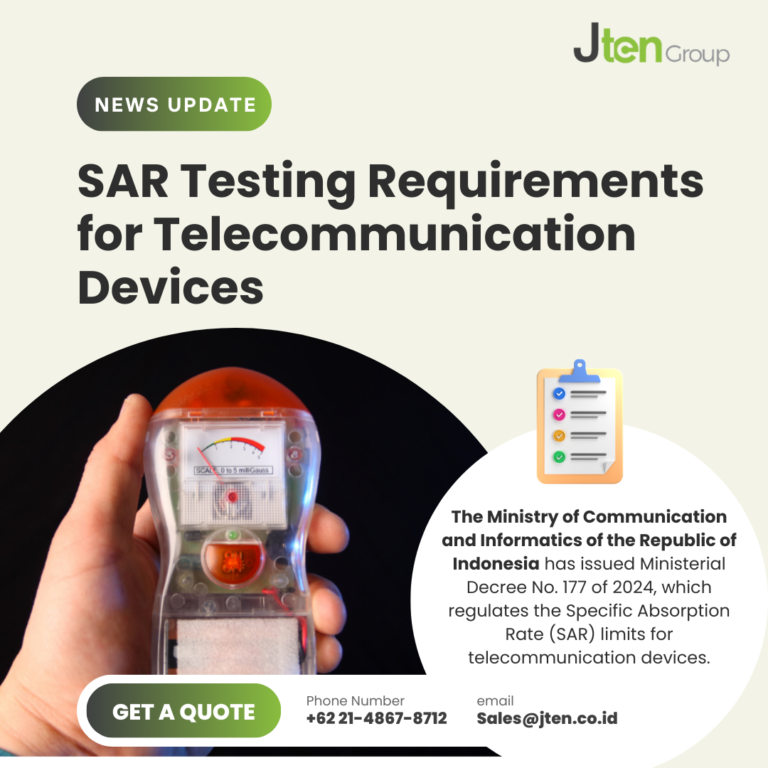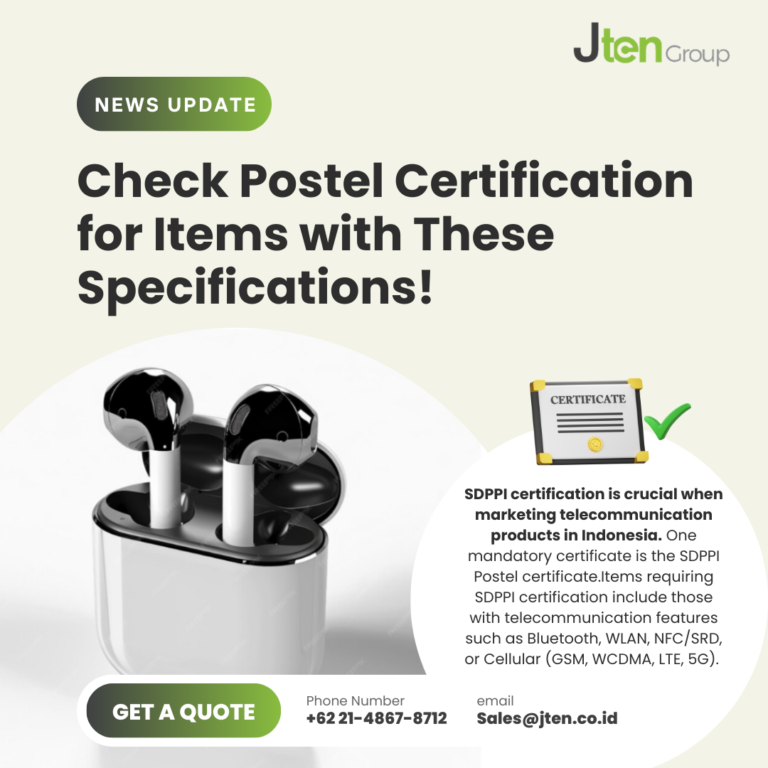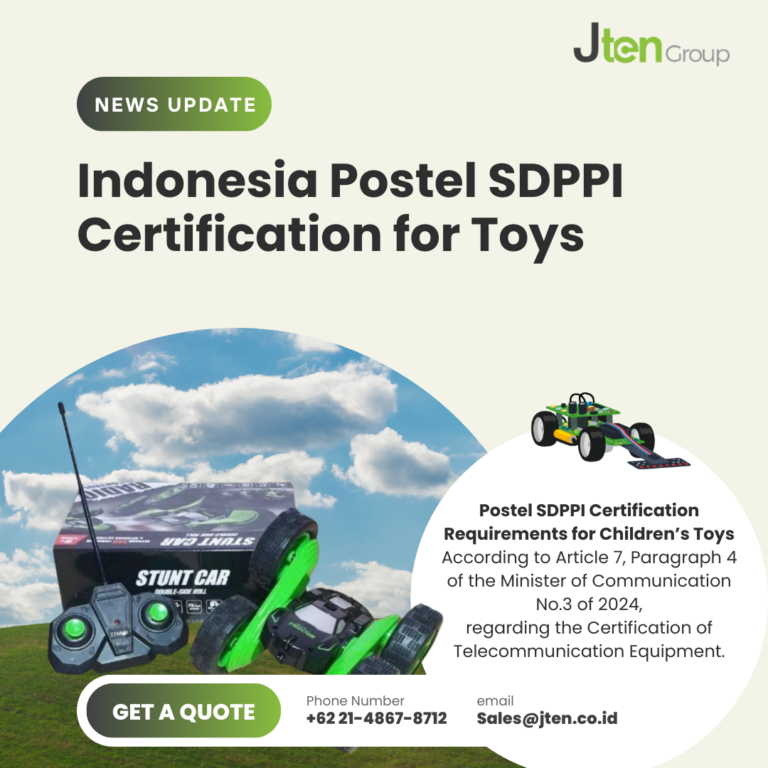Toy safety is a crucial aspect that must be considered by manufacturers, distributors, and parents. In Indonesia, children’s toys circulating in the market must comply with the Standar Nasional Indonesia (SNI) as a form of protection for children’s health and safety. SNI certification is not only a legal requirement but also a quality assurance that the product has undergone a series of quality and safety tests.
What is SNI Certification for Toys?
SNI (Standar Nasional Indonesia) certification for children’s toys is an approval granted by product certification bodies recognized by the Indonesian government. This certification confirms that toy products have met safety and quality standards according to national regulations. This obligation is enforced through Regulation of the Minister of Industry No. 24/M-IND/PER/4/2013, which was later updated by Regulation No. 29/2018 and subsequent amendments.
Toys that fall under the scope of SNI include all types of toys designed for children aged 14 years and below, such as dolls, toy cars, musical toys, educational toys, and more.
Regulations and Requirements for SNI Certification
In accordance with policies from the Ministry of Industry (Kemenperin), every children’s toy, whether domestically produced or imported into Indonesia, must have SNI certification before it is marketed. This regulation ensures that products do not contain hazardous chemicals, do not have sharp or detachable parts that pose a choking hazard, and pass physical and mechanical endurance tests.
Several aspects tested during the certification process include :
- Hazardous chemical content, such as lead (Pb), mercury (Hg), and cadmium (Cd)
- Physical and mechanical durability, to avoid injury during use
- Cleanliness and hygiene, including microbiological contamination risks
- Flammability hazards, ensuring the product does not easily catch fire under certain conditions
The certification process also involves laboratory testing, quality management system audits, and factory inspections by certification bodies accredited by the National Accreditation Committee (KAN).
Types of Toys and Mandatory HS Codes for SNI
The following is a list of toy categories that are required to have SNI certification along with their corresponding HS (Harmonized System) Codes :
| Toy Type | HS Code |
|---|---|
| Baby walker (metal) | Ex 9403.20.90.00 |
| Baby walker (plastic) | 9403.70.10.00 |
| Tricycles, scooters, pedal cars, wheeled toys; doll carriages | 9503.00.10.00 |
| Dolls and accessories | 9503.00.21.00, 9503.00.22.00, 9503.00.29.00 |
| Electric trains and accessories | 9503.00.30.00 |
| Miniature model kits (movable or not) | 9503.00.40.10, 9503.00.40.90 |
| Construction sets (non-plastic) | 9503.00.50.00 |
| Stuffed animal toys | 9503.00.60.00 |
| Puzzles of all kinds | 9503.00.70.00 |
| Educational toys: numbers, letters, toy machines | 9503.00.91.00 |
| Jump ropes | 9503.00.92.00 |
| Marbles | 9503.00.93.00 |
| Other toys (electrical or not) | 9503.00.99.00 |
Also included :
- Balloons, inflatable swimming aids made of rubber/plastic
- Toy guns/pistols
- Other toys not listed above
Applicable SNI Standards for Children’s Toys
Children’s toys are required to comply with the following SNI standards, depending on their type and features :
- SNI ISO 8124-1:2010 – Safety aspects related to mechanical and physical properties
- SNI ISO 8124-2:2010 – Flammability of toys
- SNI ISO 8124-3:2010 – Migration of certain elements (heavy metals)
- SNI ISO 8124-4:2010 – Swings, slides, and similar activity toys for indoor/outdoor use
- SNI IEC 62115:2011 – Safety of electric toys
Common test parameters include :
- Sharp and small parts that may be swallowed
- Pull and torque resistance for small components
- Heavy metal content testing
- Flammability testing
- Battery and circuit safety (for electric toys)
Application Process
The certification process includes :
- Registration and submission of technical documents such as product specifications and quality management systems
- Laboratory testing in an accredited facility
- Factory audits (for domestic manufacturers)
- Issuance of SNI certificate if all requirements are fulfilled
Once certified, manufacturers and importers are allowed to affix the SNI logo to the product packaging as proof that the toy has passed safety and quality testing.
Consequences and Sanctions for Non-Compliant Products
Children’s toys that do not have SNI certification are prohibited from being marketed in Indonesia. If non-compliant products are found, the government, through the Directorate General of Consumer Protection and Trade Compliance (Ditjen PKTN), may impose :
- Product recalls
- Administrative sanctions
- Legal penalties, including criminal charges as per applicable laws
Through strict enforcement of these regulations, the government aims to protect children from dangerous toys and to encourage businesses to produce standardized, safe products.
Why SNI Certification Matters to Consumers
For consumers especially parents it is essential to ensure that children’s toys are SNI certified in order to :
- Guarantee safety and comfort during play
- Avoid health risks from hazardous substances
- Support the use of high-quality products
- Ensure toys have been tested by accredited institutions
Parents should always check the SNI label on toy packaging before purchasing. If unsure, certificate authenticity can be verified via the relevant certification body’s website or government portal.
Conclusion
The SNI certification for children’s toys is a critical step in building a safe and responsible market ecosystem in Indonesia. Beyond legal compliance, it ensures that products used by children are tested, safe, and of high quality. By choosing SNI-certified toys, we contribute to creating a safe, healthy, and educational play environment for the next generation.



